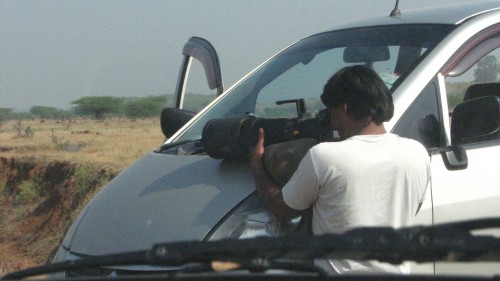 A normal travel plan can change into an eco-travel plan if you only spend a little more time deciding on the place to go. It is not necessarily the trip to a national park or a beach that makes into the list of an eco-tourism spot. The important thing is to minimize the amount of fossil fuels you burn, plan the amount of things you are carrying before you go and if possible opt to help a local conservation organization.
A normal travel plan can change into an eco-travel plan if you only spend a little more time deciding on the place to go. It is not necessarily the trip to a national park or a beach that makes into the list of an eco-tourism spot. The important thing is to minimize the amount of fossil fuels you burn, plan the amount of things you are carrying before you go and if possible opt to help a local conservation organization.
Here is what the International Union for Conservation of Nature (IUCN) recommends should be a good travel plan,
Visit World Heritage Sites
Visit places that are protected or are world heritage sites. A lot of revenue is spend in the maintenance and conservation of these sites and with your visit, the revenue generated can only ensure that the precious heritage continues to remain intact in the years to come. You can even participate in a local conservation project like helping clean the premise.
Travel Light
When you pack less things into your suitcase, there is obviously more space for souvenirs. But ecologically speaking, this little bit of space saved also helps when you save on the space in the flight. You may walk from the station to the hotel with a single ruck sack rather than call a cab and waste fuel to carry the loads of luggage.
Be your own Tour Guide
If you have done a little homework about a place before you visit it, you can easily avoid circumstances where you hire a cab just to reach a place that is a stone throw away. You can plan your visits as per your interest and days of tour rather than rely on a tour operator who might take you to a place miles away that was not even that interesting. You can also know where to get rented bikes and how to use public transports which are obviously more eco-friendly choices of traveling even in a foreign city.
Live in Eco-friendly hotels
A hotel can claim to be eco-friendly just because it has a nature themed restaurant. Therefore before you make your bookings, ask whether the hotel has some environment protection policies they adopt like saving electricity, saving water, minimizing wastage etc. you can also try and find out if they contribute towards an environment conservation project.
Travel less by Air
Air fuel consumption is the highest and thus if you can, travel less by air and more through trains or buses. This will also let you see more of the country you are visitng.
Food for thought
When spending on food, try to eat something that is locally produced rather than comes out of a tin. There is a huge amount of energy that is wasted when food products are produced, processed and packed from a place that is thousands of miles away. When you eat local food, it helps save precious energy and encourages local farmers. When eating, ensure that you are not about to feast on an endangered species.
Souvenirs
When buying things to take back home, ensure that they are not made of parts that belong to a threatened animal or plant. Also if you are interested in taking plants or seeds make note that those species are not invasive in your country as they will then destroy the habitat of the local species of your region.
Wildlife tours
Do not destroy the homes of wildlife if you are on a trip to national parks or forests. The region is a sacred home to millions of species and when you throw waste, litter or destroy the forest cover, it harms the animals and plants of the region.
Get Involved
Try and make friends with people in the region who are doing something for local conservation. Such organizations are always in need of few extra pair of hands and will undoubtedly love to have you around. This can also help you see the destination from the local’s perspective and enjoy the experience more.






2 thoughts on “Tips for an Eco-conscious Traveler by IUCN”